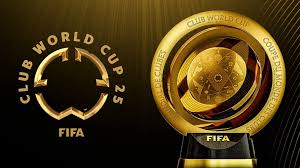The Crown Jewel Match: Chelsea’s Tactical Masterclass Against European Royalty
The Decisive 43 Minutes That Shook Football
Cole Palmer’s left foot wrote poetry on the MetLife turf—a 22nd-minute curler after Nuno Mendes’ errant header, a self-engineered stunner eight minutes later where he sent Vitinha sliding into oblivion, and a delicate 43rd-minute through ball to João Pedro that sealed PSG’s fate before halftime. Chelsea’s 3-0 victory wasn’t just an upset; it was a demolition of a team branded “imbatable” (unbeatable) after crushing Real Madrid 4-0 just days prior. The stats laid bare the irony: PSG dominated possession yet Chelsea scored from all three shots on target, exposing the gulf between control and lethality.
PSG’s Meltdown: From Champions to Sore Losers
The aftermath revealed PSG’s unraveling. Manager Luis Enrique attempted to slap João Pedro post-match, sparking a bench-clearing brawl, while goalkeeper Gianluigi Donnarumma raged at opponents. João Neves’ red card for hair-pulling Marc Cucurella epitomized their descent into petulance. Contrast this with Chelsea’s resilience: goalkeeper Robert Sánchez, named the tournament’s best, repeatedly denied PSG’s attacks, while Palmer’s revival—from a mid-season slump to Player of the Tournament—symbolized tactical discipline trumping star power.
Roads to Glory: Underdogs vs. Titans
Chelsea’s path was a masterclass in redemption: a group-stage loss to Flamengo, followed by gritty knockout wins against Benfica, Palmeiras, and Fluminense. PSG, meanwhile, entered as treble winners, bulldozing Inter Miami, Bayern Munich, and Real Madrid. Yet Chelsea’s “chess match” approach—as coach Enzo Maresca dubbed it—outmaneuvered brute force.
The Stage: MetLife Stadium as a 2026 World Cup Litmus Test
Venue Legacy and East Coast Strategy
With 81,118 fans packing MetLife Stadium—90% staying post-match for the trophy ceremony—FIFA validated its choice as the 2026 World Cup final venue. The East Coast-focused tournament strategically aligned with European time zones and avoided conflicting with the CONCACAF Gold Cup in the West. Yet the experiment faced real-world stress tests: players battled 83°F heat and 65% humidity, prompting Chelsea’s Enzo Fernández to label conditions “very dangerous” and demand schedule changes for 2026.
Innovation Under Fire: Referee Cameras and Pricing Backlash
FIFA deployed body cameras on referees, promising “never-before-seen angles” for fan engagement—a move criticized as gimmicky amid fixture congestion debates. Ticket pricing also sparked outrage: group-stage games drew minimal fans, forcing FIFA to slash prices to $25. The final saw dynamic pricing push seats to $1,200, pricing out local supporters and mirroring global inequality tensions.
Beyond the Pitch: Halftime Spectacles and Sideline Drama
The Coldplay-J Balvin-Doja Cat Fusion
In a halftime show blending eco-conscious staging and Latin-pop swagger, Doja Cat’s pyrotechnics electrified the crowd. Pre-game acts featured Robbie Williams’ anthem belted alongside Italian icon Laura Pausini—a nod to football’s globalized fanbase.
Front-Row Diplomacy and Tensions
NFL legends headlined a VIP cohort that included Wall Street elites and FIFA leadership. Yet politics intruded: boos echoed during medal presentations, underscoring football’s uneasy dance with power. The trophy itself—an unwieldy “orbital structure”—required comical logistical maneuvering, delaying PSG’s “naughty step” wait for runners-up medals.
The $125 Million Game: Finance, Fatigue, and Football’s Future
Prize Money Breakdown
Chelsea’s total earnings hit $129.5 million: a $40 million winner’s bonus, plus additional millions from group wins, knockout rounds, and participation fees. PSG secured over $113 million as consolation. This cash influx could reshape summer transfers, with top clubs already targeting reinforcements.
Player Welfare Wars
Player unions boycotted FIFA’s summit, protesting the 63-match schedule’s “dangerous” congestion. League officials rejected elite clubs’ pleas for schedule changes, highlighting a growing club-vs-governing-body rift.
Legacy and Lens: What This Final Told Us About Football’s Evolution
UEFA’s Dominance and Cinderella Stories
Europe’s privileged slots drew criticism, yet underdogs shined: Botafogo stunned PSG in the group stage, while record victories doubled as farewells for legends. The final’s all-European makeup confirmed the financial gap’s translation to silverware.
2026 World Cup Preview
MetLife’s seamless handling of 81,000 fans—plus streaming records in key markets—signaled U.S. readiness for 2026. Yet debates persist: climate-controlled stadiums may ease heat concerns, but player fatigue remains unaddressed.
This wasn’t just football; it was a cultural big bang. Sustainable staging, financial elites mingling with grassroots supporters, managerial tantrums—all under a New Jersey sky. The beautiful game’s future is spectacle, inequality, and unbearable tension. Strap in.
Chelsea’s triumph, PSG’s meltdown, and FIFA’s ambitious experiment revealed modern football’s paradox: a sport simultaneously more glamorous and more fractured. As new stars ascended and legends exited, the beautiful game’s soul hung in the balance—between commerce and craft, globalism and grassroots. One night in East Rutherford echoed louder than any trophy lift: football’s future is here, and it’s anything but simple.


